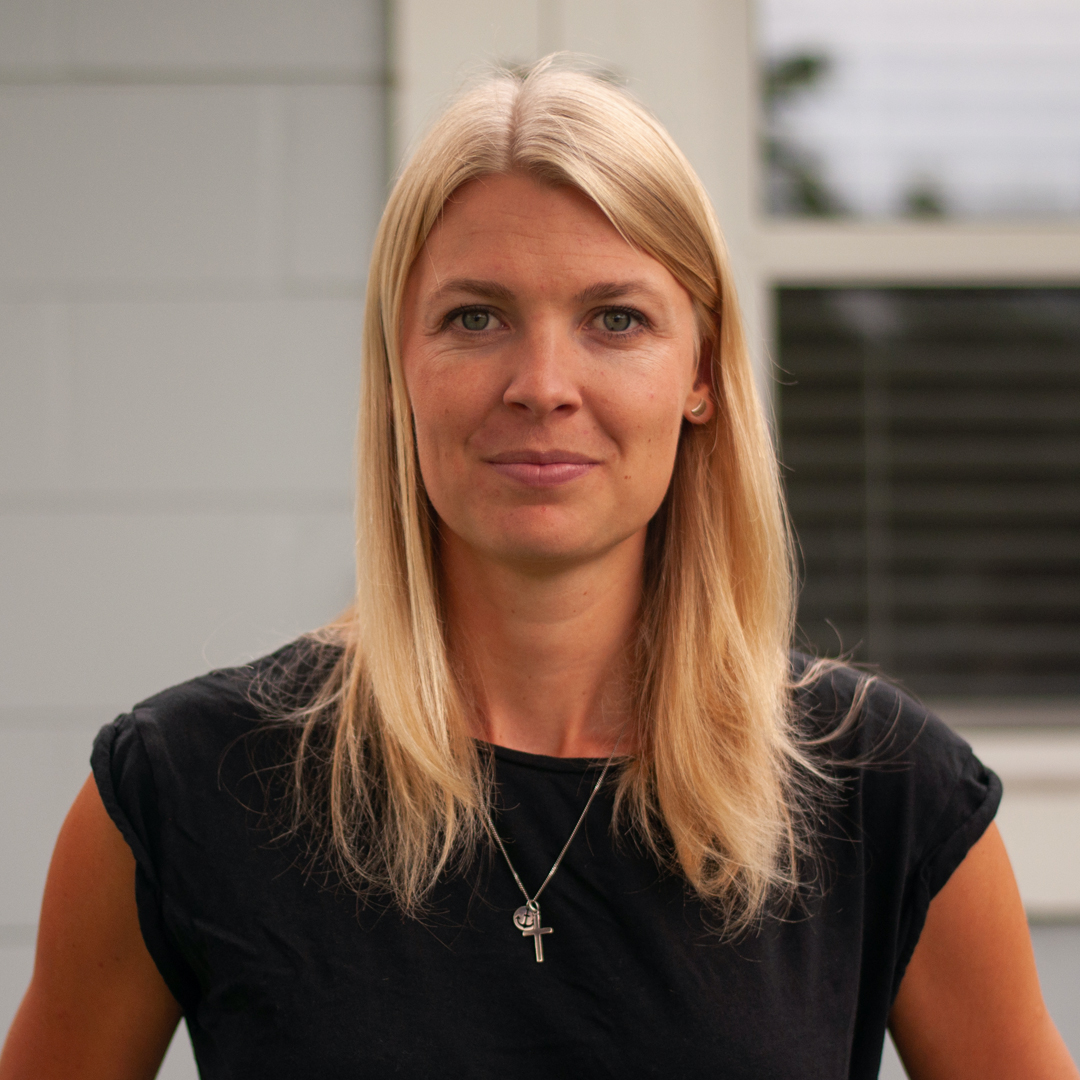
Miriam Swanson
by Miriam Swanson
“Couldn’t you use another word? Holiness just has so much baggage…”
I suddenly felt a bit awkward, standing opposite a senior church leader a couple of decades older than I am, having just told her I would be preaching on holiness that night. She wasn’t the first to react with scepticism and a little concern upon hearing the topic I was attempting to tackle. I was a twentysomething with a passion for college students and evangelism; this wasn’t considered my subject. It seemed the generations ahead of me had not taken kindly to holiness teaching in the past. Perhaps they wanted to spare me the pain? Perhaps they wanted to spare themselves. Either way, I was encouraged to speak on mission and sharing Jesus with our friends, whilst turning the volume down on this holiness talk, just to be safe.
The trouble was it was too late. Holiness had gotten under my skin and into my heart. In times of prayer with my team, times of dreaming with God about what a move of His Spirit might look like amongst young adults, we had stumbled into a conviction that a move of holiness would be a vital part of whatever revival or awakening might mean. Inseparable from encountering the powerful presence of God would be a radical call to become the kinds of people with whom the presence of God wanted to make a home — “temples of the Holy Spirit” as Paul puts it (1 Corinthians 6:19). And now, despite the “baggage” the word seemed to carry with older generations, our team members were preparing to preach holiness for the first time (we’d never even heard a talk on it) to anyone who would listen. To us it had become indivisible from sharing good news and living out the mission of God.
It was one of my lecturers at seminary, Methodist minister and theologian Calvin Samuel, who helped put flesh on the bones of this idea that holiness and mission went hand in hand. When Calvin taught on holiness, he spoke of it being God’s transformative presence in the world. He taught of holiness as an offensive power that changed anything it touched, not a state of perfection and fragility that required defensive behavior to try and protect holiness from becoming unclean. The life and activity of Jesus on the earth suddenly gained new vibrancy as I began to see how often Jesus did things deemed unclean, only to find the unclean being transformed and not His holiness tainted. The anger of the Pharisees also made way more sense when you saw their lens of holiness being a state to defend, an untouchable position to keep separate but seen, not a power to pour out wherever it was most needed. No wonder they were furious at all Jesus’ dinner parties, friendships with women, and interactions with the bleeding and the dying. Surely He was becoming more and more impure the further He dug His hands into the dirt of the world?
Jesus and His holiness were fast becoming irresistible to me, and indivisible from incarnational mission. Of course, God moving in power on campus would look like a radical move of holiness in the lives of students, not just one-off moments of confession or proclamation. This was whole-life transformation that can only happen when the transforming presence of God Himself moves in. Now the stories of students praying with their friends in the middle of nightclub dance floors and seeing God tangibly move in hearts didn’t seem so unexpected. Students became carriers of peace and security within their friendship groups, and these characteristics rubbing off on their peers made sense. Students joining the football team or debating society as well as participating in church life didn’t seem a culture clash but a natural outworking of living the mission of God, with holiness being seen best where it is hardest to find.
Jesus didn’t live a double life, but a whole life, a holy life, where there was no place in Him or around Him where God’s Spirit was not at work. What a deeply releasing invitation to each of us. We can “be holy, because I, the Lord your God, am holy” as God tells Moses to declare in Leviticus 19. Holiness is possible because it’s on God to transform us and His holiness to work in and through us, not on us to get good enough to be considered holy by God.
Despite how freeing and exciting God’s invitation to holiness now appeared to us as a team and the students we taught, the reality of living a life of transformative holiness is not so easy. Even without most of us having many negative connotations surrounding holiness, the effects of the purity culture movement (and some of the ways beautiful vision and good intentions have turned into sin management schemes and shame-driven behavior) still have an impact. We need to grow out of our bashful teenage questions of “how much can I get away with and still be saved?” and begin to really take hold of the better question: “How free in Christ can I be?” We need to consistently reframe our understanding of mission and evangelism away from solely events-based moments done by a team of trained Christians who seem to model perfection and into embracing our presence as real and stumbling disciples of Jesus in the world. We are marked by the holiness of God as the powerful witnesses God chooses to work with.
Zacchaeus was transformed by the holiness of Jesus, who invited himself to dinner when Zacchaeus was up a tree, despite being surrounded by a crowd who were not Zacchaeus’ biggest fans (Luke 19:1–10). After welcoming Jesus, Zacchaeus started canceling debts and giving away his wealth in a seemingly spontaneous response to being accepted by Jesus as holy in His sight. Nothing felt guilt-driven about his actions. No one gave him a rule to follow about his finances. But holiness was making him holy, and Zacchaeus had to respond. How I long for us to be like Zacchaeus and find our response to God’s holiness to be holy ourselves, in freedom, in elation, in radical transformation. How I long for us to be like Jesus and recognize the holiness of God in us can pour out and make all the difference in the world in any setting, up a tree, in a hostile environment, at work, over dinner, with a stranger, with our own family.
It’s been a few years now since we first started preaching holiness around the United Kingdom and further afield. In this time, I have seen an amazing shift happen in the church, as people have been stirred by the Holy Spirit to pray together, to seek greater unity for the sake of the gospel, and as part of this, found a fresh call to holy living. Holiness is not being renamed but reclaimed in these days when we desperately need God’s Spirit to transform us, set us apart, make us free, and make us whole. It isn’t getting easier to live a holy life in the world, but we must be a people of integrity who live what we profess to be true, who have been marked by the Way, and who clearly do not conform to the patterns of this world. This witness is shining out more brightly than ever in the dark.
Paul encourages Timothy: “Don’t let anyone look down on you because you are young, but set an example for the believers in speech, in conduct, in love, in faith and in purity” (1 Timothy 4:12). This is my same prayer for young adults. I pray that students would set the holiness temperature for the rest of the church, embracing God’s transforming presence in their lives and letting this new way of living spill out into the world where a touch of God’s holiness is so desperately needed. May we embrace God’s holiness that makes us holy. May we embrace the radical living that follows the radical love of God we receive. May our friends, neighbors, our campuses, our communities and those most downtrodden find themselves welcomed to the table because the presence of the holy has made them holy too.
+











Thanks for the fresh look at holiness. May it abound!
I’m glad for the growing interest in Biblical holiness. It is true that the FMC shied away from the use of the term “holiness” because of misuse. Wesley dealt with this very issue in his book entitled “A Plain Account of Christian Perfection”. He carefully addressed the objections of the use of the term “perfection”, but would not cast it aside. He made it clear that it was Biblical and therefore must be taught and promoted. In fact, Wesley advanced the Gospel teaching of sanctification and Christian Perfection with unabashed clarity and power to the benefit of the church and nation. Like Wesley, we should carefully clarify holiness Scripturally, with a strong dose of grace and truth. I observe that over the last 6 decades we’ve simply ignored the doctrine; or worse, disdained the doctrine. I pray we will return to this central element in Christian teaching. Allow me to add a caution. Reviving a term can be disastrous if we avoid the counsel of God (the law and the testimony) in gaining a full understanding of its meaning. There are elements in Biblical holiness that are missing in this article, which Wesley sets forth in his sermons and other writings. We must be careful to provide the full and Biblical understanding. God bless.